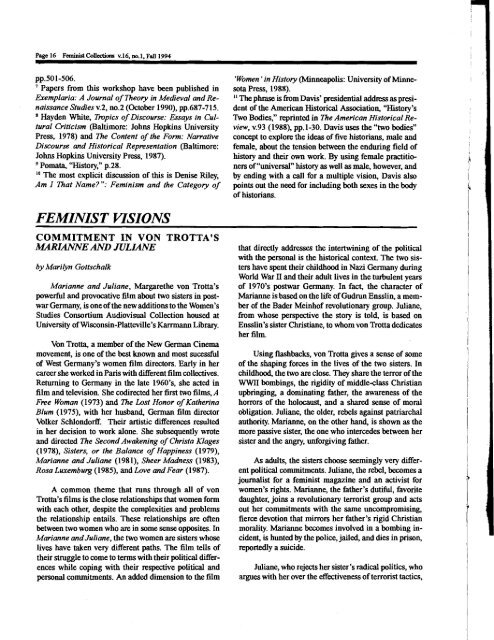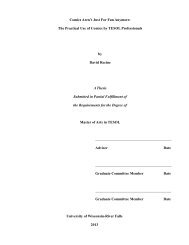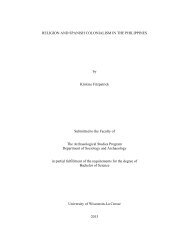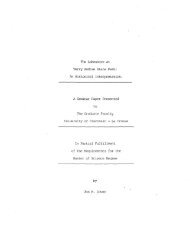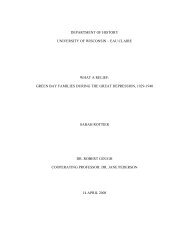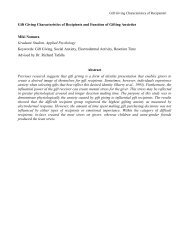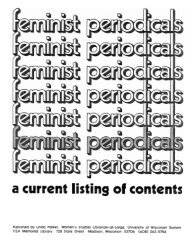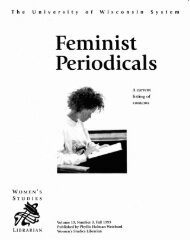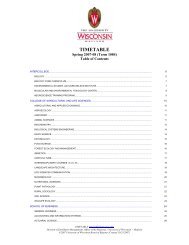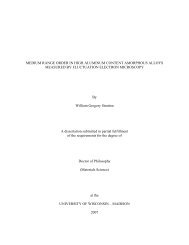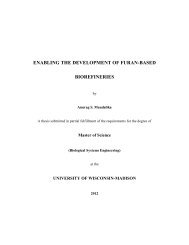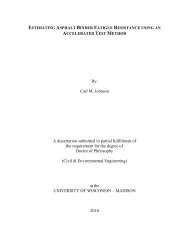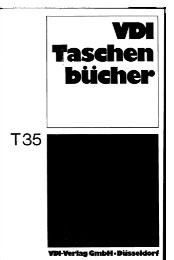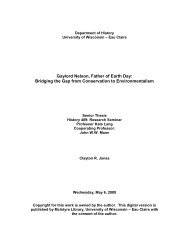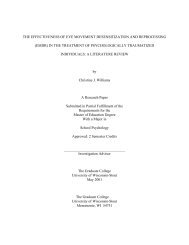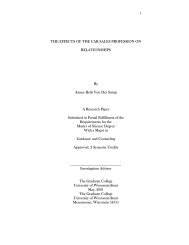1 CONFRONTS THE TEXTBOOK.. - MINDS@UW Home - University ...
1 CONFRONTS THE TEXTBOOK.. - MINDS@UW Home - University ...
1 CONFRONTS THE TEXTBOOK.. - MINDS@UW Home - University ...
Create successful ePaper yourself
Turn your PDF publications into a flip-book with our unique Google optimized e-Paper software.
pp.501-506.<br />
' Papers from this workshop have been published in<br />
Exemplaria: A Journal of Theoty in Medieval and Re-<br />
naissance Studies v.2, no.2 (October 1990), pp.687-715.<br />
Hayden White, Tmpics of Discourse: Essays in Cul-<br />
tural Criticism (l3altimore: Johns Hopkins <strong>University</strong><br />
Press, 1978) and The Content of the Form: Narrative<br />
Discourse and Historical Representation (Baltimore:<br />
Johns Hopkins <strong>University</strong> Press, 1987).<br />
Pomata, "History," p.28.<br />
lo The most explicit discussion of this is Denise Riley,<br />
Am I That Name?": Feminism and the Categoty of<br />
FEMINIST VISIONS<br />
COMMITMENT IN VON TROTTA'S<br />
MARIANNE AND JULWVE<br />
by Marilyn Gottschalk<br />
Marianne and Juliane, Margarethe von Trotta's<br />
powerful and provocative film about two sisters in post-<br />
war Germany, is oneof the new additions to the Women's<br />
Studies Consortium Audiovisual Collection housed at<br />
<strong>University</strong> of Wisconsin-Platteville's Kanmann Library.<br />
Von Trotta, a member of the New German Cinema<br />
movement is one of the best known and most sucessful<br />
of West &rmany's women film directors. Early in her<br />
career she worked inParis with different film collectives.<br />
Returning to Germany in the late 1960's. she acted in<br />
film and television. She codirected her first two films, A<br />
Free Woman (1973) and The Lost Honor of Katherina<br />
Blum (1975), with her husband, German film director<br />
Voker Schlondofi. Their artistic differences resulted<br />
'Women ' in Histoty (Mi~e3poliS: <strong>University</strong> of Minnesota<br />
Press, 1988).<br />
" The phrase is from Davis' presidential address as president<br />
of the American Historical Association, "History's<br />
'bo Bodies," reprinted in The American Historical Review,<br />
v.93 (1988), pp. 1-30. Davis uses the "two bodies"<br />
concept to explore the ideas of five historians, male and<br />
female, about the tension between the enduring field of<br />
history and their own work. By using female practitioners<br />
of "universal" history as well as male, however, and<br />
by ending with a call for a multiple vision, Davis also<br />
points out the need for including both sexes in the body<br />
of historians.<br />
that directly addresses the intertwining of the political<br />
with the personal is the historical context. The two sis-<br />
ters have spent their childhood in Nazi Germany during<br />
World War 11 and their adult lives in the turbulent years<br />
of 1970's postwar Germany. In fact the character of<br />
Marianne is based on the life of Gudrun Ensslin, a mem-<br />
ber of the Bader Meinhof revolutionary group. Juliane,<br />
from whose perspective the story is told, is based on<br />
Ensslin's sister Christiane, to whom von Trotta dedicates<br />
her film.<br />
Using flashbacks, von Trotta gives a sense of some<br />
of the shaping forces in the lives of the two sisters. In<br />
childhood, the two are close. Thiy share the terror of the<br />
WWII bombings, the rigidity of middleclass Christian<br />
upbringing, a dominating father, the awareness of the<br />
horrors of the holocaust, and a shared sense of moral<br />
obligation. Juliane, the older, rebels against patriarchal<br />
authority. Marianne, on the other hand, is shown as the<br />
in her decision to work alone. She subsequently wrote more passive sister, the one who intercedes between her<br />
and directed The Second Awakening of Christa Klages sister and the angry, unforgiving father.<br />
(1978), Sisters, or the Balance of Happiness (1979),<br />
Marianne and Juliane (1981), Sheer Madness (1983), As adults, the sisters choose seemingly very differ-<br />
Rosa Luxembu~ (1985), and Love and Fear (1987). ent political commitments. Juliane, the rebel, becomes a<br />
journalist for a feminist magazine and an activist for<br />
A common theme that runs through all of von women's rights. Marianne, the father's dutiful, favorite<br />
Trotta's films is the close relationships that women form daughter, joins a revolutionary terrorist group and acts<br />
with each other, despite the complexities and problems out her commitments with the same uncompromising,<br />
the relationship entails. These relationships are often fierce devotion that mirrors her father's rigid Christian<br />
between two women who are in some sense opposites. In morality. Marianne becomes involved in a bombing in-<br />
Marianne and Juliane, the two women are sisters whose cident, is hunted by the police, jailed, and dies in prison,<br />
lives have taken very different paths. The film tells of<br />
their struggle to come to terms with their political differreportedly<br />
a suicide.<br />
ences while coping with their respective political and Juliane, who rejects her sister's radical politics, who<br />
personal commitments. An added dimension to the film argues with her over the effectiveness of terrorist tactics,


